We are pleased to introduce you to the distinguished winners of ASA’s 2024 awards. The winners will be honored in a ceremony during the Annual Meeting in Montréal. Each of the pieces below were submitted by the relevant award selection committee, and we thank the committees for their good work.
Cox-Johnson-Frazier Award
John B. Diamond, Brown University
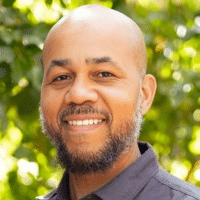
For this influential body of scholarship, Diamond has been elected a member of the National Academy of Education, delivered the American Educational Research Association (AERA)’s 19th Annual Brown Lecture in Education Research, and been named an American Educational Research Association (AERA) Fellow. Diamond’s groundbreaking book Despite the Best Intentions: How Racial Inequality Thrives in Good Schools (Oxford University Press, 2015), coauthored with Amanda E. Lewis, won the Eduardo Bonilla-Silva Outstanding Book Award from the Society for the Study of Social Problems, Critical Race and Ethnic Study Division.
Diamond is also a generous and transformative community leader. He has a long and established record of consultation with school districts all over the country. This work enables him to attempt to apply lessons from his research to real life. He has also served to help author expert witness reports to document social inequities in school systems, which led to the largest case settlement in the state of Wisconsin’s history involving racial and sex discrimination in K-12 schools. This is an important example of public sociology in action. In recognition of this important work, and with the hopes of aiding its continuation, Diamond was recently granted $8.1 million in funding from the Wallace Foundation, which will support his research on the development and implementation of equity-centered principal pipelines. Finally, it also should be noted that Diamond is an exemplary mentor. As one of his recommenders put it, “Dr. John B. Diamond has helped change the very conversations we have around race and race relations in the field of sociology of education. He bridges academic research and teaching with social justice activism on many fronts and exemplifies the very spirit of the Cox-Johnson-Frazier Award.” It is truly an honor to recognize Diamond’s excellence!
Dissertation Award
Luis Flores, Harvard University, for the dissertation titled “The Regulatory Politics of Home-Based Moneymaking After the American Family Wage,” completed at University of Michigan
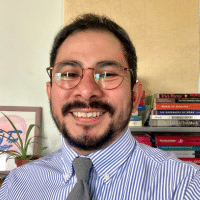
Taken together, these cases ingeniously illuminate aspects of the broader transformation in financial capitalism that Flores unpacks in his dissertation. Drawing on a rich archive that spans regulatory filings, complaints and investigations, code violations, court challenges, and similar data sources, Flores explores instances where state and citizen were engaged in conflict in deciding where the line between family and market was drawn. This innovative data collection strategy yields vital insights that suggest the necessity of integrating the family more centrally into understandings of contemporary neoliberal capitalism. It also suggests the necessity of exploring a more variegated terrain of the economy, as the blurring of home and market provides novel insights into how immigrant labor and other informal workers navigate new forms of precarity. Flores’s nominator and dissertation chair, Greta R. Krippner, writes, “Luis’s dissertation is beautifully written and meticulously researched, rendering complex social processes with clarity and insight. It raises critically important questions about the changing nature of twenty-first century capitalism but manages to illuminate large-scale macrohistorical transformations from the vantage point of ordinary people managing these transformations in their day-to-day lives.”
The committee also offers the designation of Honorable Mention to:
Brandon Alston, The Ohio State University, for the dissertation titled “Policing the Black Metropolis: Race, Surveillance, and Resistance,” completed at Northwestern University
Distinguished Career Award for the Practice of Sociology
Robert Courtney Smith, Baruch College and Graduate Center, CUNY
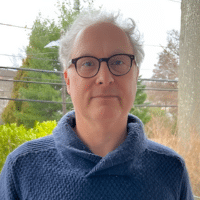
Smith’s practice of sociology has systematically extended the insights of his community-engaged research into real-world change. In the words of one of his many passionate nominators, “I know of few other examples of this level of commitment to making one’s academic research have an impact in real life.” This impact is illustrated by his work on the DACA Access Project. Having documented the effects of differential and changing access to legal status, Smith worked with immigrant leaders to support DACA applications that set hundreds of Mexican immigrants on a pathway to legal incorporation in the United States. He was also the primary coauthor of an amicus brief for the U.S. Supreme Court’s 2019 DACA case; the argument of this brief was adopted in the court’s decision to preserve DACA against the Trump administration’s attempt to terminate it. Smith has served as an effective expert witness in many additional cases, for instance helping to defend DACA against a Texas suit and to increase the access of undocumented migrants to bank loans and drivers’ licenses in New York state.
In 2020, Smith worked closely with a nonprofit organization to assess the impacts of the COVID-19 pandemic on the health and well-being of migrants in New York. The op-eds and reports he drafted from this work resulted in funding that allowed the organization to help support migrant workers excluded from federal relief programs, and he followed up with additional research to compare the health of workers who did not and receive these payments.
Not content to excel in sociological practice himself, Smith has also helped many other members of the discipline become proficient in public and community-engaged sociology, designing trainings on how to use research in expert witness testimony, focusing his year as President of the Eastern Sociological Society on engaged sociology, and editing a Sociological Forum special issue on the topic. His former doctoral students describe Smith as preferring to work “without fanfare,” but are themselves quick to characterize him as “a model of what sociologists can do in the world” and to praise his “tireless work for students and immigrant families,” as well as his impact on their own ability to effect meaningful policy change in multiple countries. Smith’s approach toward the practice of sociology is nicely captured by a New York City official who wrote, “The main point here is that Professor Smith has always been there when I have needed him, or when my community has needed him. He always says yes, and always strengthens our case with his sociological knowledge and research.”
Distinguished Career Award for the Practice of Sociology
Monica M. White, University of Wisconsin-Madison
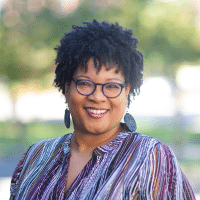
Reflecting this interdisciplinary impact, her first book, Freedom Farmers: Agricultural Resistance and the Black Freedom Movement (University of North Carolina Press, 2018), received outstanding book awards from the Society for the Study of Social Problems, the Association of American Geographers, and the Association for the Study of Food and Society. The book illuminates the historical foundations of contemporary food justice and sovereignty movements in U.S. cities, from the origins of Black farmers’ organizations in the late 1800s to their resistance activities in the 1960s and 1970s. In so doing, White reclaims the role of land and Black agriculture from slavery narratives and emphasizes a form of resistance through community-led development.
White’s practice of sociology builds from the earliest work of Black sociologists, both binding research tightly to lived experience and directly serving the communities from which it comes. This service includes prolific engagement with organizations around the country—including the Detroit Black Community Food Sovereignty Network, Southeastern African-American Farmers Organic Network, Keep Growing Detroit, Federation of Southern Cooperatives, Environmental Health Watch, and the Black Oaks Center for Sustainable Renewable Living. Within these organizations, White has served in the role of board member, grant-writer, strategic planner, historian, and more. At the national level, White is a member of the Food Equity Committee of the Union of Concerned Scientists, the Food Justice Task Force of the Institute for Agriculture and Trade Policy, and the Coordinating Committee of the U.S. Food Sovereignty Alliance. White is also the leading force behind Blackademics, the research arm of the National Black Food and Justice Alliance (NBFJA). In this role, she is helping to launch a new journal that will feature the work of faculty, students, farmers, activists, and artists. Also, in conjunction with NBFJA, White is National Director of the HBCU Project, through which she aims to bring Agroecology Centers to a web of HBCUs across the country. White herself serves as Project Lead for the first funded site—the Lola Hampton-Frank Pinder Center for Agroecology at Florida Agricultural and Mechanical University. At UW-Madison, White is the founding director of the Office of Environmental Justice and Engagement, working to connect faculty and students to community-based organizations working in environmental/food/land justice. Finally, White is a sought-after speaker who has given dozens of invited talks across and beyond university venues, including the Aspen Institute, the Smithsonian Institution, the Highlander Research and Education Center, the Farmers Conference at Tuskegee University, and Milwaukee’s 2019 Summit on Poverty.
White’s nominators describe her as a “staunch advocate, storyteller, and dedicated researcher for Black food and land justice,” and her community collaboration and outreach work for the future of Black farming as “spectacular.” Her sociological practice inspires others to “do more” with the sociological lenses and tools we marshal. As one of our colleagues concludes, “She is a sociological griot who builds sociological theory, grounded in the historical and contemporary lived experiences of Blacks in America, particularly Black farmers and food producers, and in so doing, is reclaiming generations-old strategies of resistance and promise all while creating the next generation of organic intellectuals whose movements will form the cornerstone of social movements for food sovereignty and racial and social justice.”
Distinguished Contributions to Teaching Award
Robin G. Isserles, Borough of Manhattan Community College, CUNY
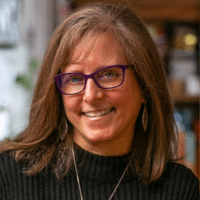
Much of her scholarship has focused on expanding pedagogical practices in community college settings. Through her published work, she has expanded understanding in the discipline of what it means to teach at a community college and the lessons that can benefit academia. She authored the chapter “Cultivating Engagement and Deepening Understanding While Leaving the Textbook Behind” in Learning from Each Other: Refining the Practice of Teaching in Higher Education (University of California Press, 2018), edited by Jeffrey Chin and Michele Lee Kozimor.
However, her most significant publication is The Costs of Completion: Student Success in Community College (Johns Hopkins University Press, 2021). In it, Isserles discusses the narrow way in which “student success” in community colleges is defined. She challenges the narrow way academia evaluates community colleges on degree completion and other conceived student success metrics. Isserles argues that challenging the “non‐completers” narrative simply pushes students to take a full course load to build “momentum” toward graduation and ignores that an overwhelming majority (87 percent) of community college students do not complete an associate degree in two years. From a teaching perspective, this is important because it offers insight into institutional design around pedagogy for transfer students.
These contributions and more led the committee to view Isserles as deserving of the award. Even though this is not a lifetime achievement award, in this case the award marks her lifetime contributions and immortalizes her legacy. As sociology continues to be more inclusive of community colleges, educators should heed the invaluable lessons learned from Isserles and incorporate some of her lived experience into their own lives.
Distinguished Contributions to Teaching Award
Michele Lee Kozimor, Elizabethtown College
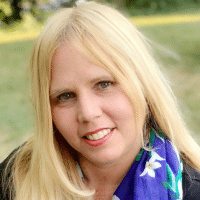
Kozimor has an established record of teaching excellence that extends beyond her classroom. Students have raved about her teaching methods, which incorporate diversity, thorough feedback, and a communicable love for sociology. She has taken this passion and created spaces for students to present research at conferences and gain exposure to the profession, especially through work on committees and journals.
Kozimor has coordinated, hosted, and facilitated teaching and learning workshops through Alpha Kappa Delta, the American Sociological Association, Association for Applied and Clinical Sociology, Eastern Sociological Society, Southern Sociological Society, and Pacific Sociological Association. She also coedited Learning from Each Other: Refining the Practice of Teaching in Higher Education (University of California Press, 2018) and Emerging Stronger: Pedagogical Lessons from the Pandemic (Routledge, 2023), both with Jeffrey Chin.
It is this passion to share pedagogy innovations that has shifted the way teaching and learning is viewed in sociology. The results have led to increased quality of discussions around teaching and learning, an increase in the number of voices involved in the discussion, and encouraged a broader perspective of what a well-rounded sociologist can be. She has won national and collegiate awards for her work, including the Hans O. Mauksch Award for Distinguished Contributions to Undergraduate Sociology in 2019 and the Carla B. Howery Award for Developing Teacher-Scholar in 2023, which were both awarded by ASA’s Teaching and Learning in Sociology Section. She was also awarded the 2018-19 Kreider Prize for Teaching Excellence from Elizabethtown College.
Kozimor embodies the spirit of this award, demonstrating the power of wanting to change the world through teaching and learning and how important it is to find a passion and push it as far as you can.
Distinguished Scholarly Book Award
A Man among Other Men: The Crisis of Black Masculinity in Racial Capitalism (Cornell, 2022) by Jordanna Matlon, American University and Institute for Advanced Study in Toulouse
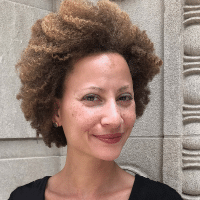
Throughout the book, Matlon discusses how Black men’s socioeconomic roles have shifted over time, from undervalued labor power to commodity object, to fraught consumer, and, finally, to surplus labor in a global market economy. The book examines the long crisis of Black masculinity in racial capitalism across three parts, each of which considers this relationship from a distinct level of analysis. Part I traces the racial and gendered logic of capitalism from the eras of slavery and colonial subjugation in West Africa to today’s era of post-wage-labor entrepreneurialism. Because Europe’s conquest of Africa and the emergence of global capitalism were based on political and social systems that privileged being male and white, Black men have always faced a dilemma of economic participation. Today, in colonialism’s wake and amid shifts away from the wage-labor model that excluded them, Abidjanais men face two constructions that constitute idealized, individual-focused models of masculinity to follow: the évolué (“evolved”), or masculinity that is rooted in economic aspiration, and the Black Atlantic media icon, or masculinity that commodifies Blackness and extols celebrity. These imaginaries, combined with the material conditions wrought by a global capitalism that suppresses wage labor and promotes entrepreneurialism, structure the everyday experiences of Black men in Abidjan.
In Part II, Matlon situates these racialized imaginaries of a “real man” in the French colonial African context of Côte d’Ivoire, while in Part III she telescopes in to show the everyday lives of Abidjanais men through rich ethnographic data. Specifically, she shows how underemployed men who are unable to achieve breadwinning masculinity amid civil war and an economic crisis nonetheless subscribe to masculine ideologies of success and value. Excluded from conventional employment opportunities, they assert their own masculinized economic agency, such as through street vending and public oration. In doing so, these men reaffirm the patriarchal system that undergirds the system of racial capitalism that subordinates Black masculinity.
A Man among Other Men is a work of deep insight and titanic importance from a fantastic scholar. Matlon has delivered a text that speaks to several of our discipline’s largest and most central subfields, including race, gender, and social class, as well as labor, global and transnational sociology, postcolonialism, and globalization. Since the book’s analytical object is capitalism hegemony itself, she weaves these broad topics together within a framework of global political economy. Given the scope and scale of an argument about how Black masculinity has been both constructed by and used to serve a capitalist system, it would not be surprising if a book that tackled these social problems occupied and stayed at a level of abstract theorizing. A Man among Other Men does not do so. Throughout the book Matlon carefully explains theories and ideologies of race and gender without ever losing sight of the real places and actual material conditions that people experience in their everyday lives. Matlon’s work is an exemplar of sociology’s promise to explain the relationship between social structures and social life.
The committee also offers the designation of Honorable Mention to:
Deadly Decision in Beijing: Succession Politics, Protest Repression, and the 1989 Tiananmen Massacre (Cambridge, 2023) by Yang Su, University of California-Irvine
The Struggle for the People’s King: How Politics Transforms the Memory of the Civil Rights Movement (Princeton, 2023) by Hajar Yazdiha, University of Southern California
Jessie Bernard Award
Cecilia Menjívar, University of California-Los Angeles
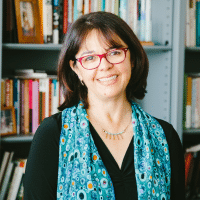
Currently professor and Dorothy L. Meier Social Equities Chair in the Department of Sociology at the University of California-Los Angeles (UCLA), as well as Past President of the American Sociological Association, Menjívar has published widely on Latin America, immigration, violence, and women. This research agenda has focused both on Central American immigrants (including Salvadoran, Guatemalan, and Mexican) navigating life in the United States, as well as women in Central America. As Leisy Abrego writes, Menjívar is “recognized as one of the most thoughtful immigration scholars of our time, as well as one of the most notable pioneers of the interdisciplinary field of Central American Studies.” And as Gloria González-López observes, Menjívar’s “inspirational books are now part of the canon, the ‘must read’ in gender and migration studies in the United States and Latin America.” These books include the award-winning Fragmented Ties: Salvadoran Immigrant Networks in America which follows Salvadoran immigrants as they embark on new lives in San Francisco, showing powerfully the linkages between generation and gender in the making of the immigration experience; and the pathbreaking Enduring Violence: Ladina Women’s Lives in Guatemala (University of California Press, 2011), which reveals the everyday, routine gender-based violence stitched into the fabric of life in eastern Guatemala.
Menjívar’s scholarship at the nexus of citizenship, belonging, and legality has done much to support the lives and rights of Central American immigrant women. As Nina Bandelj explains, Menjívar “stands out as a humanist, a staunch advocate for women immigrant and refugee human rights, providing testimony in court and writing white papers and reports that literally change women’s lives.” Menjívar’s sole and coauthored policy reports (in Spanish and English) and amicus briefs, as well as testimony as an expert witness in courts and before Congress, has drawn on years of her intensive and on-the-ground qualitative research. This work has supported, among many others, efforts by the American Civil Liberties Union and various class action lawsuits brought against plans to end DACA protections for youth. Veronica Montes adds that Menjívar’s “work on the gender-based violence of Central American women has made her one of only a few scholars to serve as an expert witness on the social and legal contexts of countries for asylum cases. Having served as an expert witness for a few cases, I can attest to the physical and emotional toll these cases bring, but [Menjívar] takes it all in stride.”
The award committee was especially impressed by Menjívar’s record of teaching and mentoring. As her nominator, Andrea Gómez Cervantes, describes, Menjívar has “mentored (directly and indirectly) many women students across universities in and outside the United States. Her patience and empathy make her a heartwarming mentor” and “she purposely has pushed to make room for women of color in academia. She advocates for her students and mentees at all levels of the academy (junior scholars, postdocs, graduate, and undergraduate students).” In another letter of support, Neda Maghbouleh writes, Menjívar “has turbo-charged my career and the careers of countless others through good deeds, most of which we likely don’t even know about because she rarely takes credit for having done so, and—to a fault—does not self-promote her own successes and good work.”
For this record of feminist scholarship, mentoring, teaching, outreach and activism, Menjívar is deserving of the 2024 Jessie Bernard Award.
Public Understanding of Sociology Award
Cecilia Menjívar, University of California-Los Angeles

Besides being a great mentor and supportive colleague, Menjívar’s service to the discipline is undeniable. She is a Past President of the American Sociological Association and was elected W.E.B. DuBois Fellow of the American Academy of Political and Social Science in 2023. She has also chaired both ASA’s International Migration Section and Latina/o Sociology Section, served on various ASA committees and editorial boards, and has written many promotion letters. Her impact is also apparent through thousands of citations of her work.
As she writes in recent articles in American Behavioral Scientist, “A key point to remember is that the publicly engaged work I describe here is not done separately from our academic research; it is centrally anchored in and fully integrated into rigorous social science scholarship. Undertaken with this in mind, this work should not be a distraction or derailment from the requirements to meet academic career benchmarks. But as the many colleagues engaged in this work can confirm, it is enriching personally and expansive as it is often done in collaboration with dedicated individuals who aim to improve the lives of the people at the center of our work.”
She is a frequent commentator in the media through quotes, op-eds, and policy-relevant reports. In 2015, she won the Public Sociology Award of the International Migration Section. The Museum of Social Justice in Los Angeles also named her a Social Justice Hero honoree in 2021.
As Robert Courtney Smith writes in his letter of support, her iterative approach, “mostly hidden from public view, Dr. Menjívar has used her findings and the strong relationships with community and immigrant groups and legal advocates and other stakeholders to periodically intervene in venues closer to direct policymakers and stakeholders, such as holding meetings or testifying on her findings at hearings in Congress or at the state or local level” to advance policy changes or “writing amicus briefs for the immigration courts and the Supreme Court” for the 2019 case that preserved DACA along with other colleagues. She has also worked successfully with the National Temporary Protected Status Alliance (NTPSA) to extend TPS status for millions of immigrants.
An immigration lawyer who has worked with Menjívar on asylum cases wrote, “She has written expert declarations that are so thorough and persuasive that they have been used in countless cases.” Menjívar’s expert testimony is “life-saving.” Attorney, Stephen Manning stated, “because of her research and work and ability to apply the research to real live situations, she made enormous difference in the lives of so many of the women and children fleeing violence and persecution in Central America.” Another lawyer wrote that her client “asked that I relay her gratitude to ‘La Doctora.’ Yet, I don’t think that she fully grasps how difficult it was to win this case, but I know that there’s no way that we would have prevailed without Dr. Menjivar’s assistance. That is how Dr. Menjivar saved Alma’s life.” Thus, she is fully deserving of the 2024 Public Understanding of Sociology Award.
W. E. B. Du Bois Career of Distinguished Scholarship Award
Michael Burawoy, University of California-Berkeley
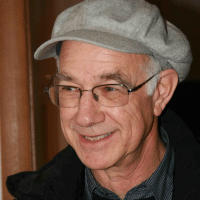
Burawoy launched his career with his pivotal first book Manufacturing Consent: Changes in the Labor Process Under Monopoly Capitalism , based on his doctoral research conducted in a Chicago machine shop. This work challenged existing Marxist theories of the labor process, setting a new standard in labor sociology. Burawoy has made pathbreaking contributions in both theorizing and researching labor and industrial capitalism, and in analyzing how their dynamics work differently across space, time, and geographic context. Moreover, he has produced a remarkable set of theoretical contributions—starting with Marx and Gramsci, followed by Polanyi, then Bourdieu, and finally most recently, in ongoing work on Du Bois.
In addition to these major theoretical and empirical explorations of labor and industrial capitalism, Burawoy has made field-transforming interventions in research methods. He is especially well known for his work in ethnography, developing the analytic framework of “the extended case method” to demonstrate the epistemological and analytical leverage theoretical claims can provide to empirical work.
Burwoy is both a Past President of the American Sociological Association and Past President of the International Sociological Association and he used both roles to broaden participation in and widen the public impact of the field. This significant work is most evident in his promotion of what he calls “public sociology,” beginning during his tenure as president of ASA. This advocacy for a more public sociology was a critical intervention in the field, pushing sociologists to interact more directly with the world we study, aiming to consciously engage in research in the interests of the least powerful. Burawoy has also called on the discipline to welcome and reward efforts by sociologists to engage in public debates, to present scholarly research to broad publics, and to address policymakers and communities as well as other academics.
Burawoy’s leadership in the discipline extends beyond scholarly interventions, encompassing his commitment to incorporating diverse voices, particularly from the Global South, into sociological debates. This range of scholarship, from empirical and analytic work at the heart of the field, to methods and epistemology, to sociological theory, truly spans the discipline and is unmatched in sociology today.
With seemingly infinite devotion and intellectual energy, Burawoy has chaired over 80 dissertation committees and mentored countless students and colleagues across the globe. Furthermore, his role as a teacher at Berkeley has left a lasting impact, shaping the education of countless undergraduate and graduate students over four decades.